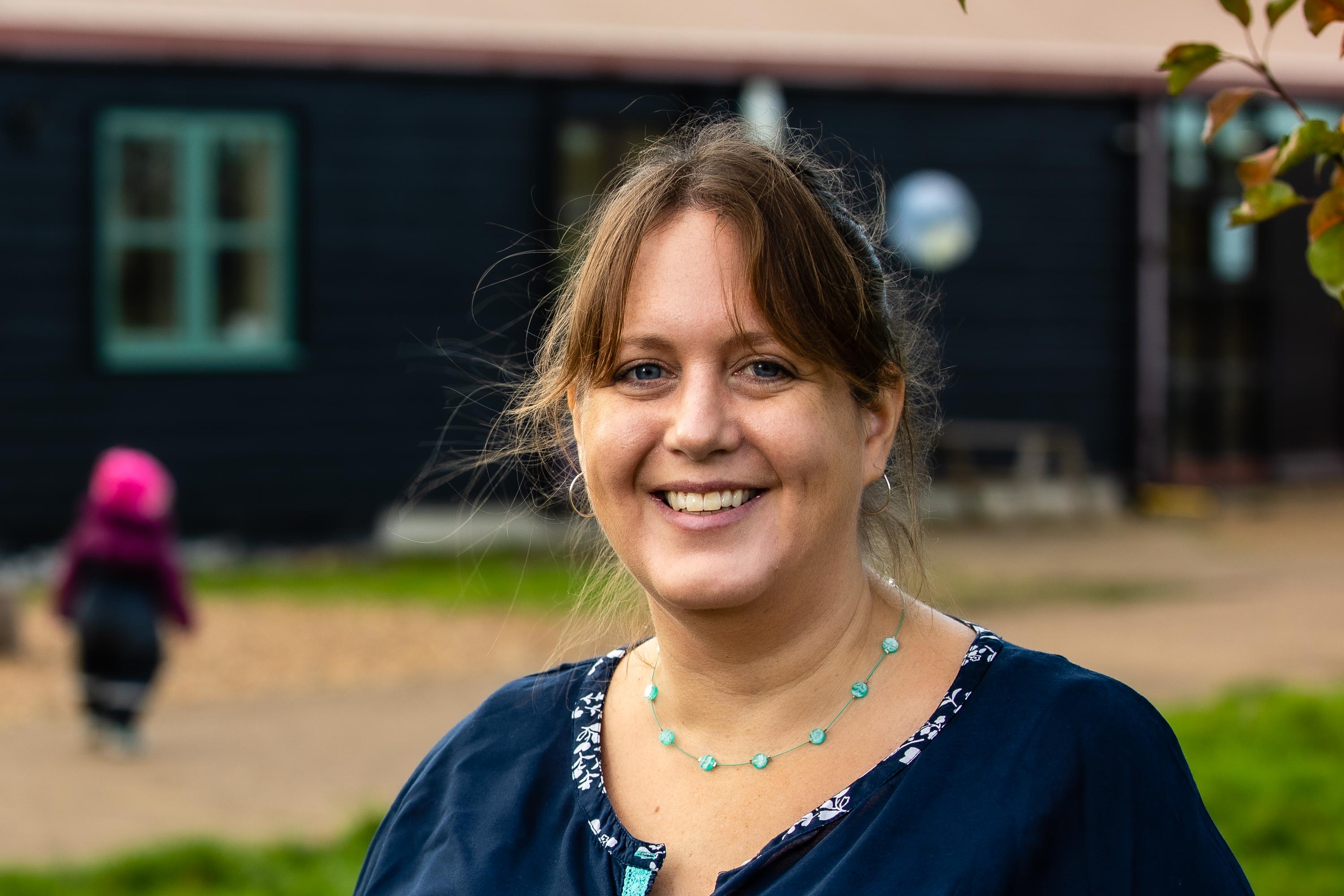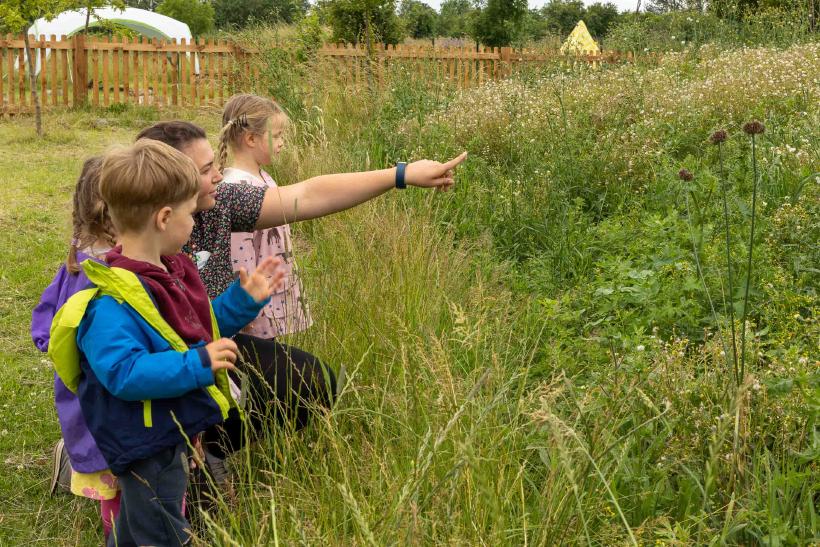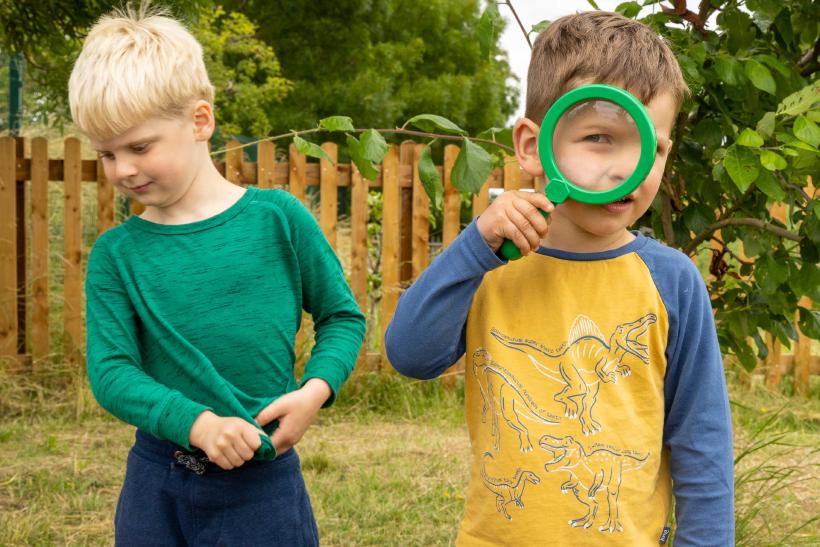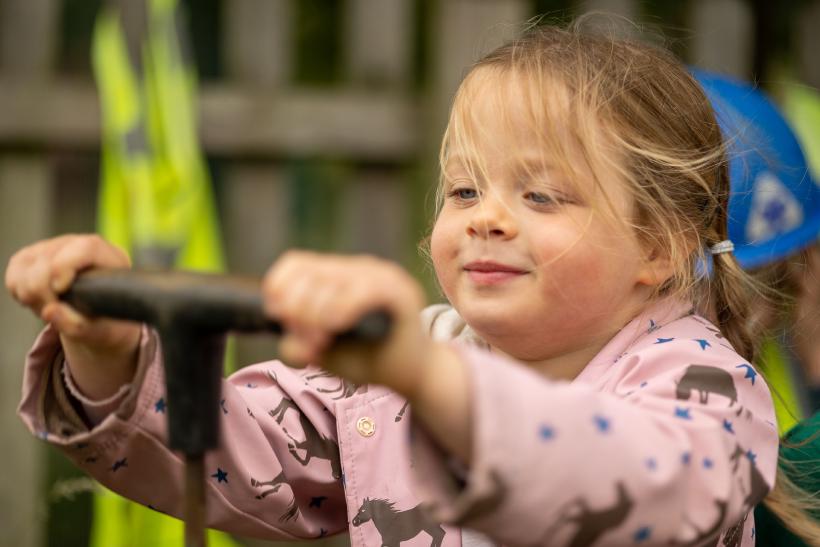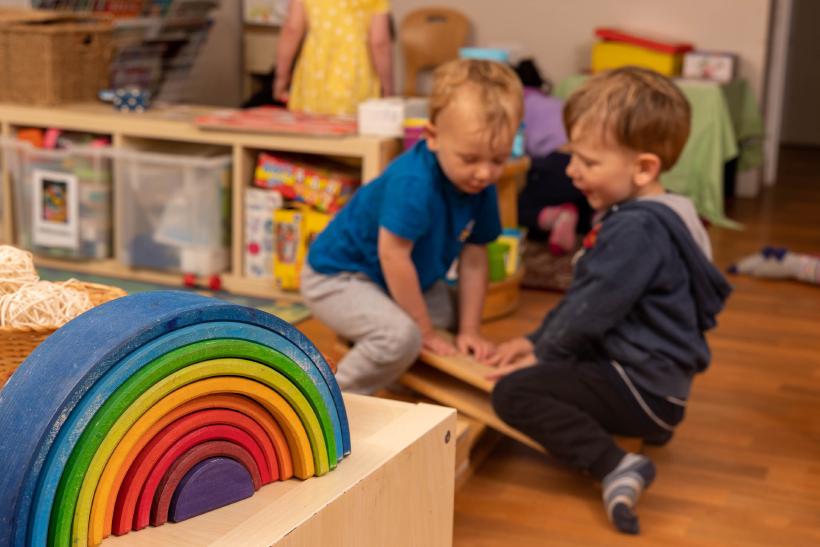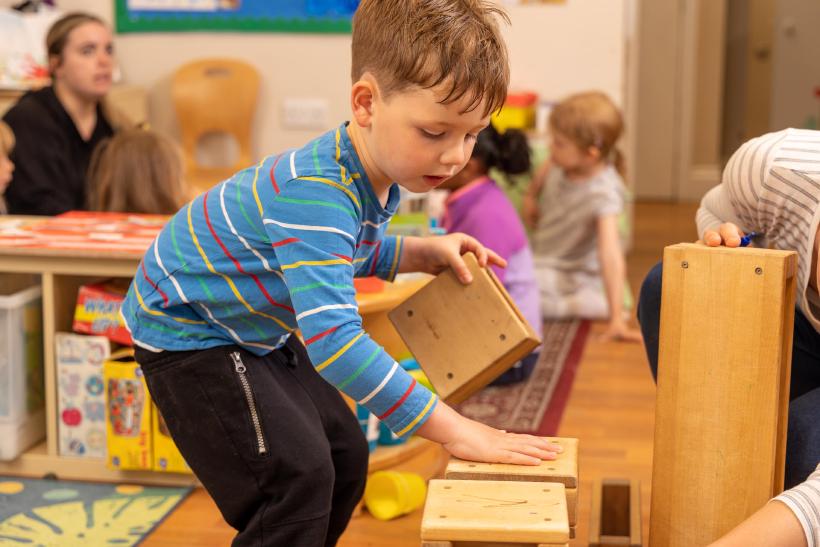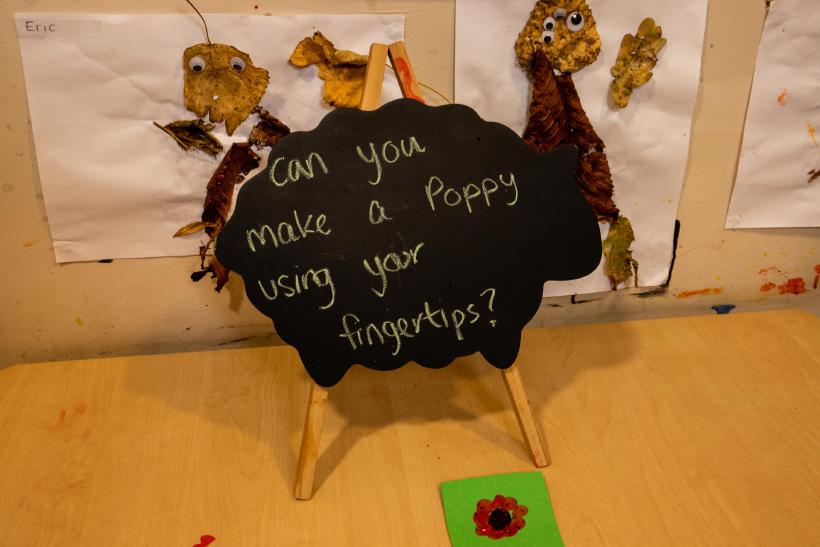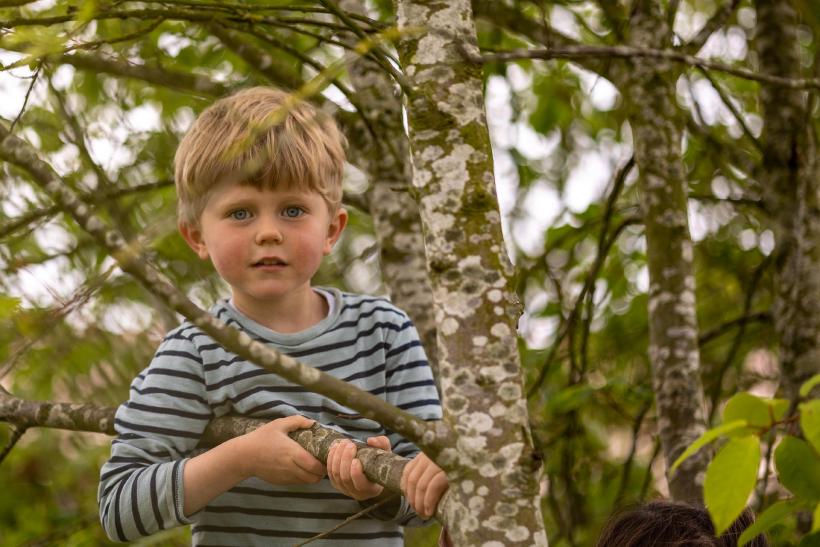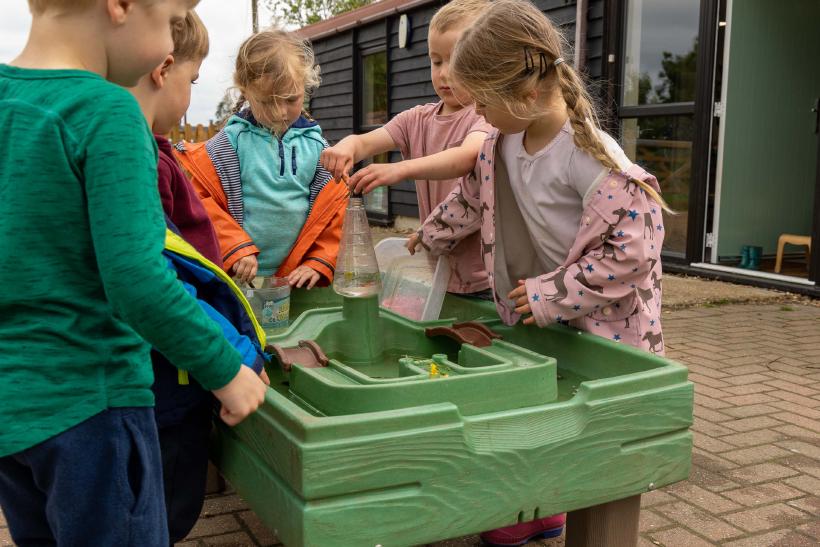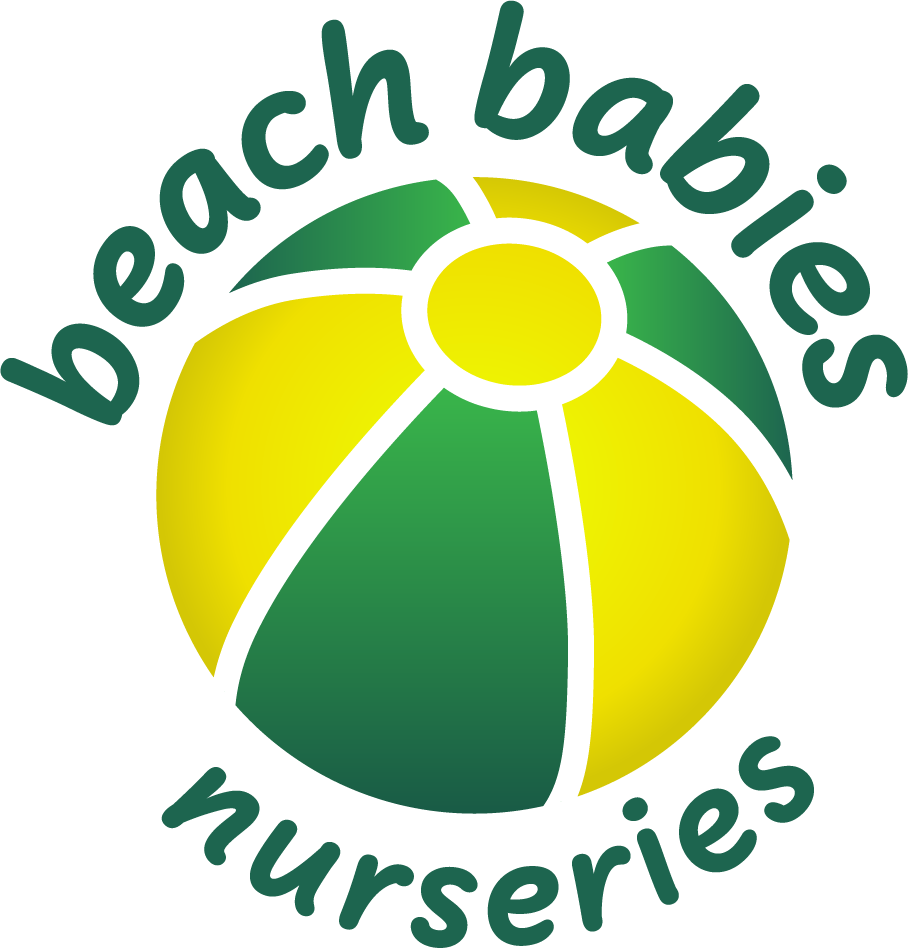Since establishing Beach Babies over 16 years ago, the children in our care continue to be at the centre of all the decisions that we make. We have always strived to provide a homely, welcoming environment where children feel safe and cared for. As the new EYFS curriculum launched and encouraged settings to create a curriculum unique to them, it has given us the opportunity to reflect on the values and ethos that are at the heart of our Beach Babies Family. One of our four main aims, by the time our children leave us and are ready to transition to school, is for them: ‘To know that my opinions and feelings and those of other people matter.’
Valuing a Child’s Voice — their opinions, thoughts and ideas
Communication skills are vital. From the Babies to the Toddlers and Pre Schoolers, we value all their ways of communicating — whether it be through pointing, gesturing, Makaton, sounds, babbling or beginning to talk using words and phrases until they can have full conversations. We listen, interact, and respond positively. Time is precious and we are fortunate to be able to be flexible and adapt our days to allow for children to have time to think, process, practice, revisit and consolidate all the new experiences, knowledge, and concepts that they are learning every day.
We listen to and value their ideas, get to know their interests and use these to inspire future planning. By providing opportunities for children to communicate with their peers and adults — sharing thoughts and ideas, children can grow in confidence and begin to feel valued as part of our community, knowing that when they speak, they are listened to.
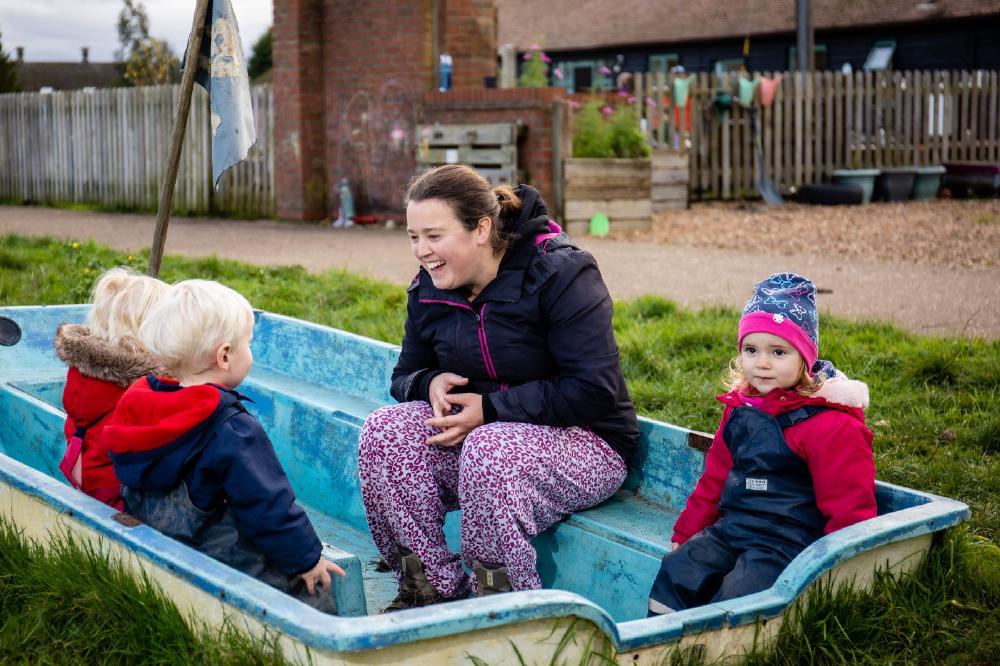
Ready to set sail
Some opportunities we provide, include Show and Tell, Philosophy 4 children discussion questions, carefully chosen children’s books linked to themes or a Super Shiny Shelf to celebrate models in progress or completed to value their efforts and the process as well as the final creation. Open-ended questions enable children to explore ideas and discussions — often leading their learning off on a tangent, but equally as valuable. But we also recognise and empathise with their frustration when their communication skills are not evolved enough to clearly express their feelings and understanding when challenges arise and emotional responses can overwhelm a situation.
Supporting children to develop strategies to recognise and learn how to regulate their emotions
We are all familiar with the phrase ‘the terrible twos’, seeing a toddler upset and distraught because the cup they’ve been given is the wrong colour, or their seemingly extreme, over-emotional response to their sock not feeling right on their foot. These little people have enormous emotions that can overwhelm them at any given moment. When they are very young, children’s emotions are too intense for them to manage & they physically can’t regulate them alone, it is our job to help children remain calm so that we can be their thinking brain and give them the language for their feelings. We need to let them see that we understand their feelings and help them calm down, then support them to manage the situation. This is how emotional resilience is built.
We strongly agree with Julien Grenier’s belief that children are not born with self-regulation skills, they develop them as they experience warm, nurturing and loving relationships with important adults and others. But also, clear, consistent boundaries are important. Self-regulation is a term used more frequently now within our practice as its importance in a child’s developmental progress is so widely recognised. It describes the result of interaction and experiences. Key workers getting to know our children really well and having positive partnerships with parents–enable a holistic understanding and approach to their children’s development.
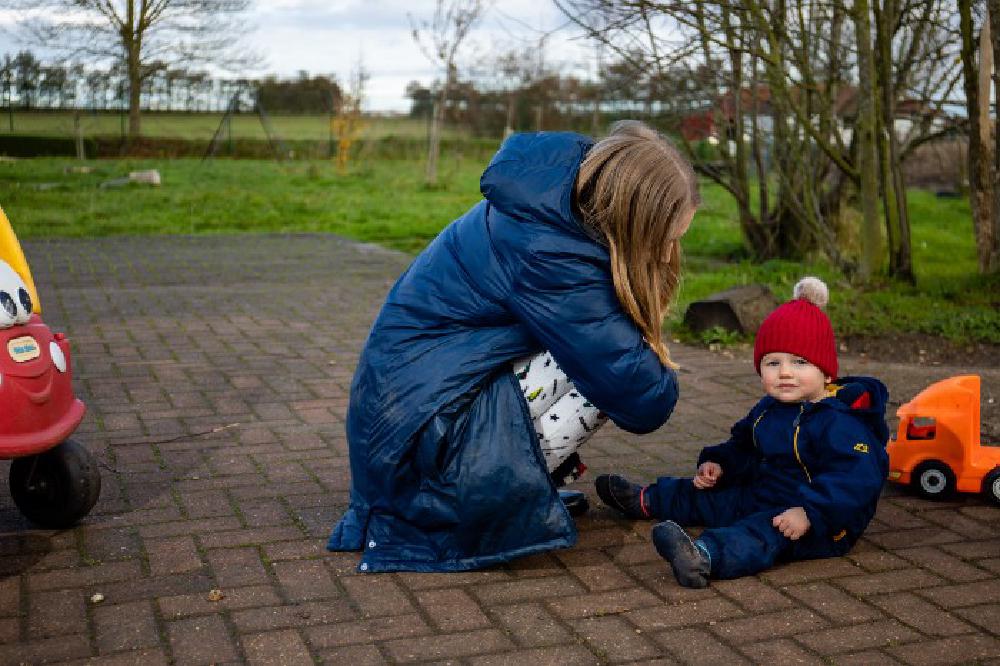
Getting to know you really well
Whenever we are stressed or anxious, our thinking brain switches off and we respond out of instinct and emotion; as adults, through experience, we have found ways to manage our responses because our brain has developed. Young children’s emotional brains have not yet developed the ability to deal with changes. We need patience and compassion with young children, as we simply cannot reason with their young limbic brains, as their ‘thinking’ brain has not yet developed.
Brain Development
I am fascinated by brain development. Through courses I’ve attended and other reading, I have collected interesting facts along the way. Obviously, every brain is unique and development from soon after conception can be impacted by factors including genetics, drugs or alcohol, stress levels or trauma of different kinds. The effects of which can sometimes be healed whilst others are irreversible. The science behind general expectations of brain development is:
The brain is an unusual organ that does not have much cell production after birth. We are the cells we are born with — around 100 billion brain cells. Other organs produce new cells or repair themselves. But the brain is quite incredible in that when brain cells become active through everyday experiences, they stretch, change shape and grow branches so that they can connect to other cells. 1 cell can develop around 1000 branches that reach out and connect with other cells. So, a child is born with a brain that is a 1/3 adult size, then it can double in size within the first year of life, dependent upon the number of connections the cells that child is making through the relationships with their carers and sensory exploration of the world around them. It is 25 years before the brain reaches full maturity.
Brains develop in phases:
The Brain Stem develops between 0–6 months. Babies are born with survival behaviour that grabs the attention of adults. Babies cannot survive without an adult. The brain stem control heart rate, breathing, fight, flight or freeze responses. It is totally reactive and unable to ‘think’.
The Mid Brain develops between 6 months — 2 years. It develops physical movement and coordination, roll, crawl and enables children to discover what they can do physically.
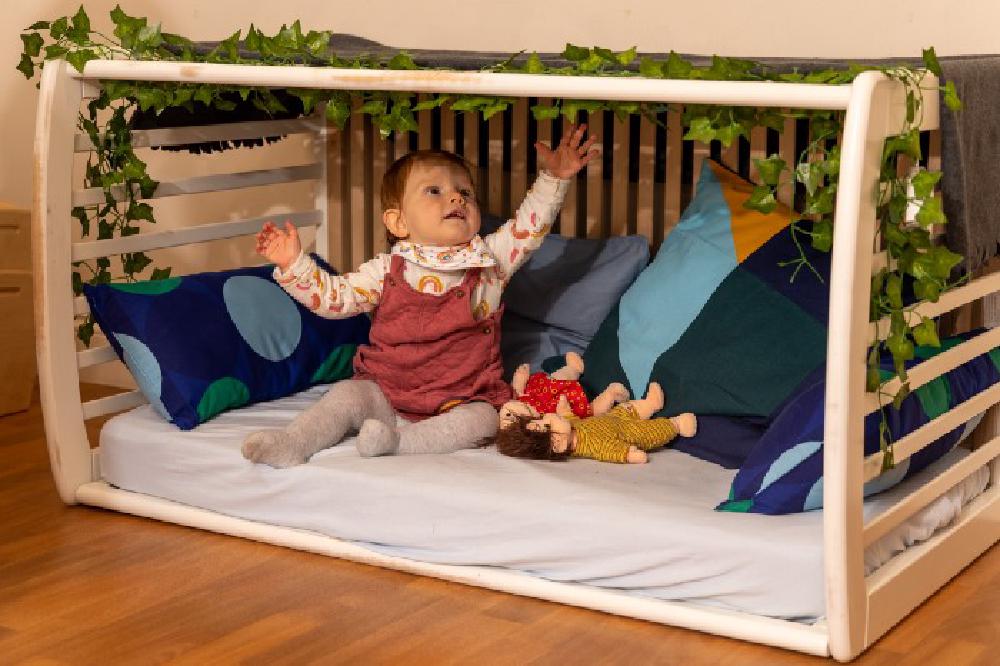
Brain development changes as you grow
The limbic part of the brain develops between 2 and 7 years. This is the emotional brain. During this phase of development, children begin to experience BIG emotions but do not have the language and thinking part of the brain to express this emotion or strategies to deal with them.
Cortical -the thinking part of the brain develops from 4 years to adult.
So, when we find ourselves in challenging situations with a very young child who is having an emotional response to a situation, which is seemingly irrational to us; we must take a breath and take a moment to think logically and acknowledge that the toddler who is front us does not yet have the skills to reason, communicate clearly or think rationally about their behaviour and responses. As hard as it is in the moment — they are doing exactly what they should be doing for their stage of development.
What do we already do?
Supporting our children through this huge developmental phase is the most valuable role we have during their time with us. Our relationships with our children ensure that they feel safe, cared for, have an enjoyable time and can communicate freely with us. Establishing familiar routines and becoming aware of expectations and boundaries help children feel safe. We can use real objects as points of reference or visual timetables to reassure them how their day is progressing and when it will be time to go home with their loved ones.
Sharing small steps and big milestones, both at nursery and in family life through the online learning journal Tapestry values their place in our community. It recognises the importance of special times together and the learning they are doing and progress that they are making along the way. There are wonderful books that we can share with our children to open up discussion about feelings, emotions, resolving conflicts and persevering through challenging situations. It is so important for our children to develop emotional literacy — being able to recognise a range of emotions, name them and learn how to manage them. Emotional intelligence is a life skill. Our emotional responses to learning motivate our intent to learn.
From a very young age, we use words relevant to the situation. We do not simplify by making a response only ‘happy’ or ‘sad’. We acknowledge that not being able to put their wellies on when trying their best — can be frustrating, or it can be disappointing if someone else has taken their favourite book home to borrow. Similarly, we can role model and articulate how we are feeling in response to situations that arise in the moment– such as feeling excited about going to explore outside when it starts snowing.
We can help children develop strategies to cope, when they feel big emotions. For example, using sand timers can help them learn patience and feel in control when waiting for a turn on a tricycle and recognising others’ emotions and learning phrases about asking if a friend needs help are valuable life skills. Learning strategies to resolve conflict, are lifelong skills that they develop as their communication skills improve.
Praising and celebrating acts of kindness and demonstrations of empathy through values the children’s contribution to the community of our nursery. It may be sharing a smile, verbal recognition, thumbs up, a hug or adding a handprint leaf to a Kindness Tree.
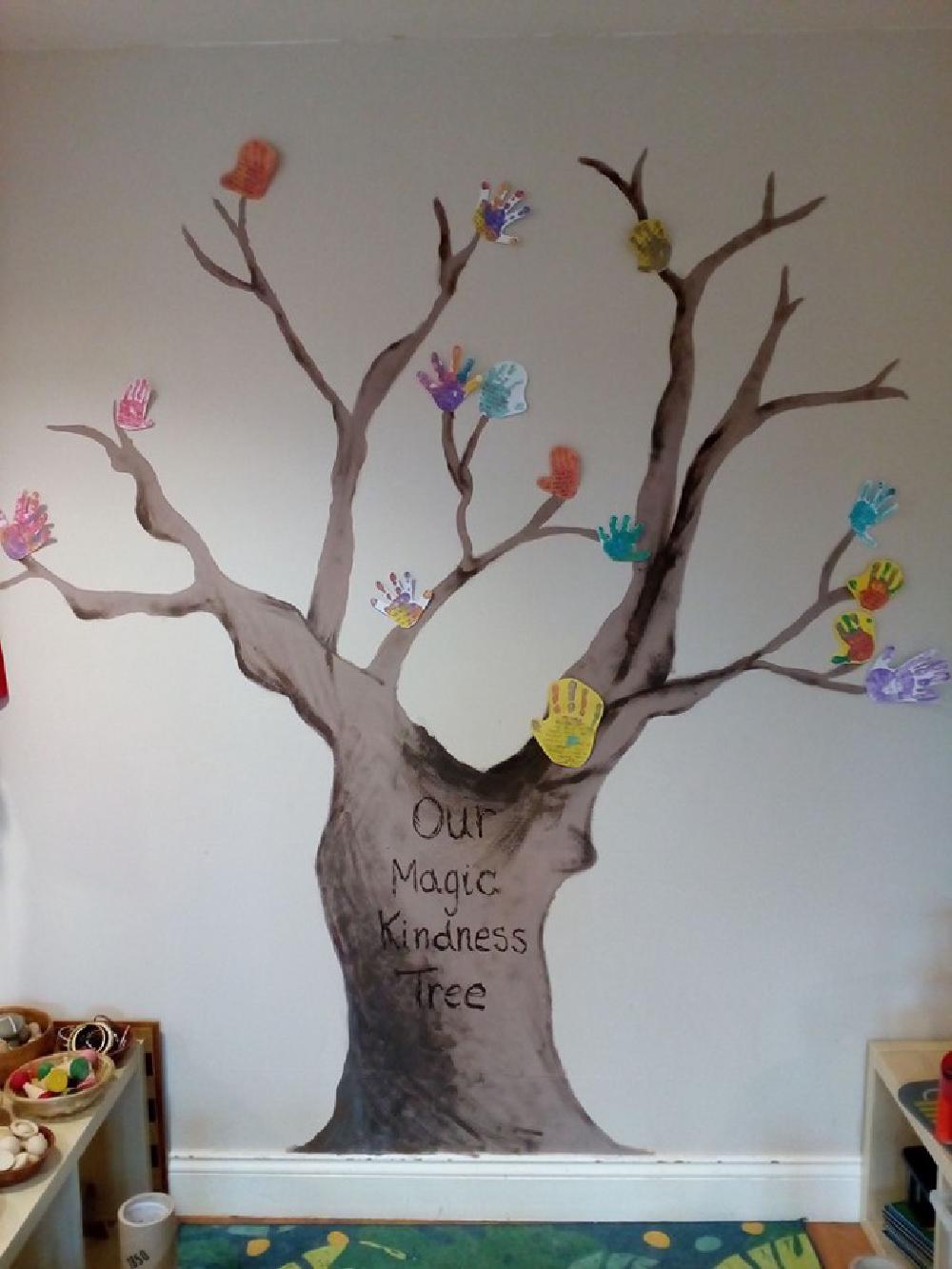
The kindness tree for sharing acts of kindness
When we respond to a child whose emotions have overwhelmed them and they have become upset, we use the ‘5 to Thrive’ model of Respond: acknowledge their emotions; Engage: calm, comfort; Relax: communicate reassurance; Play: positive interactions and expression; Articulate: talk, communicate and help support them to move on to resolve the problem or embrace the new experience so that they can continue to enjoy their day. This can be a very quick process or over an extended time depending upon their needs.
Every positive interaction — be it a hug, a smile, a gesture, praise or celebration, helps the brain make another neural connection and develop into a stronger, healthier brain.
By Carolyn Evans
Book Recommendations for Children
-
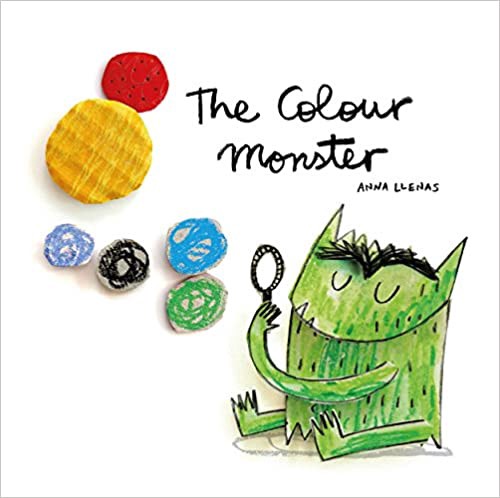
Colour Monster — Anna Llenas
-
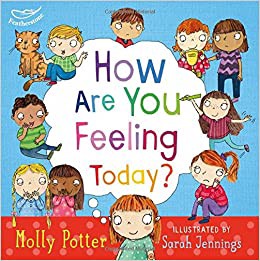
How Are You Feeling Today? — Molly Potter
-
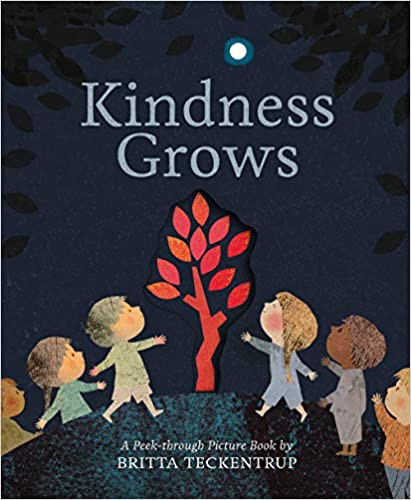
Kindness Grows — Britta Teckentrup
-
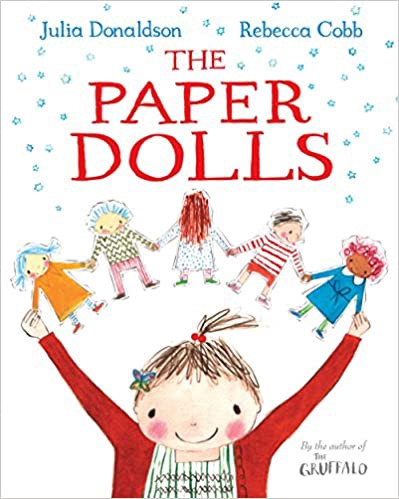
Paper Dolls — Julia Donaldson
-
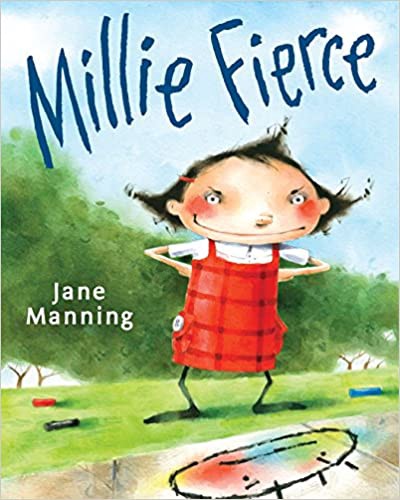
Millie Fierce — Jane Manning
-
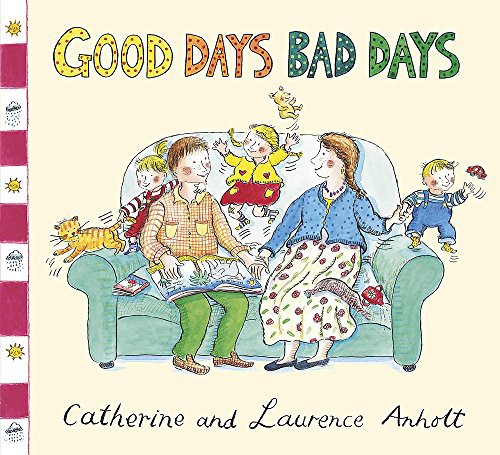
Good Days, Bad Days — Catherine & Laurence Anholt
Book Recommendations for Adults
-
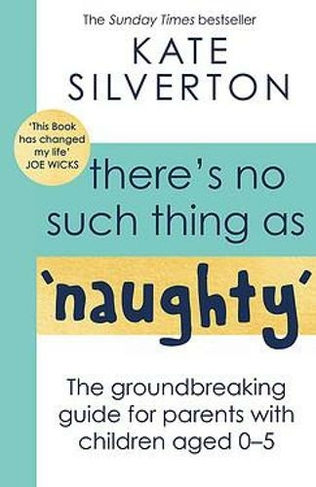
There’s no such thing as ‘naughty’ — Kate Silverton It describes the brain, how it develops and suggests techniques and strategies to help you respond positively to your children and their behaviour patterns.
-
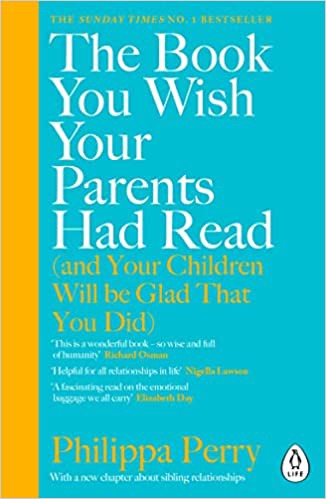
The Book You Wish Your Parents Had Read — Philippa Perry This book reflects upon how your relationships with your parents can impact on how you respond to, interact with and support your own children.

